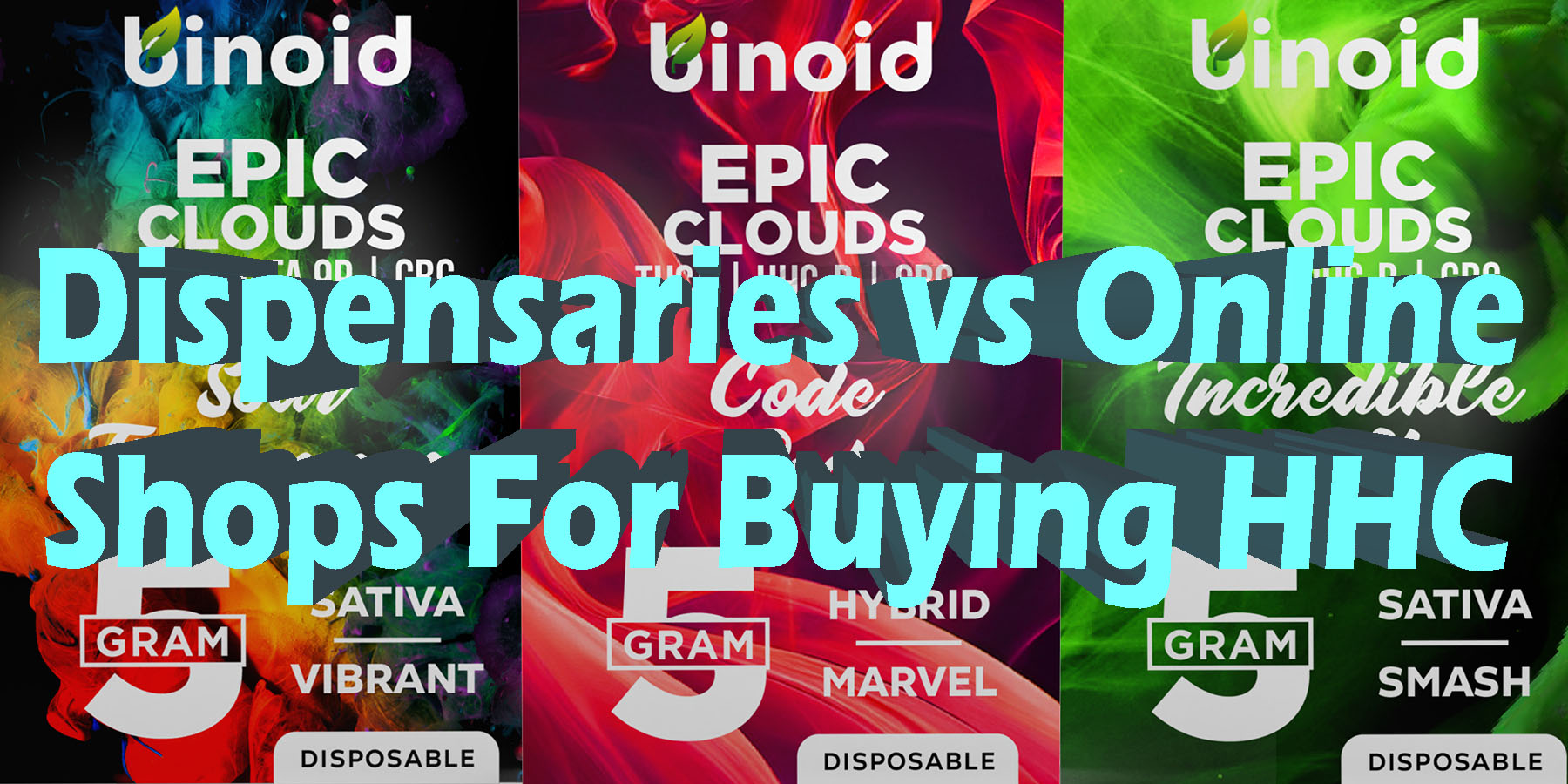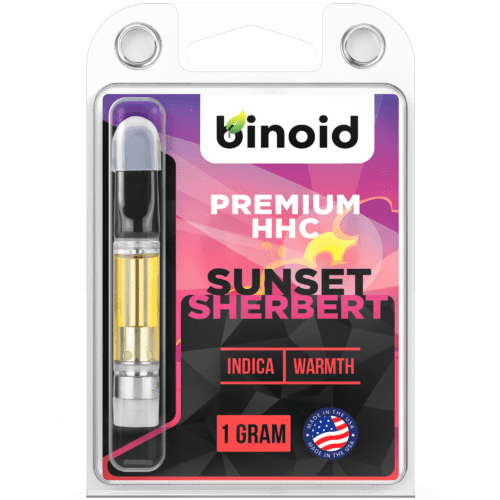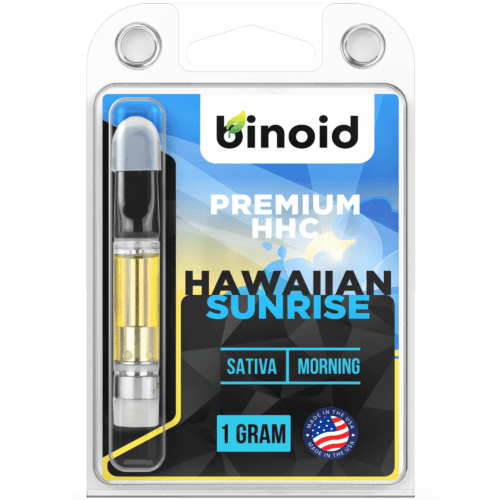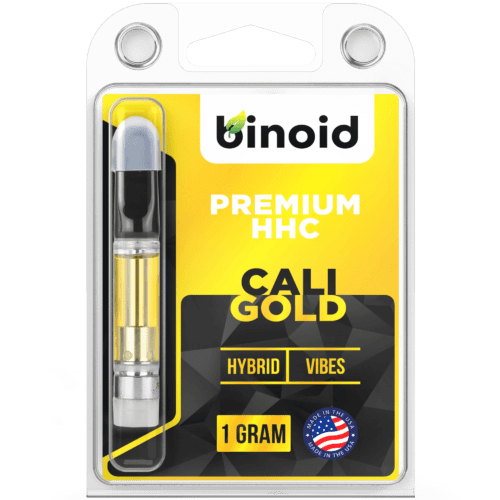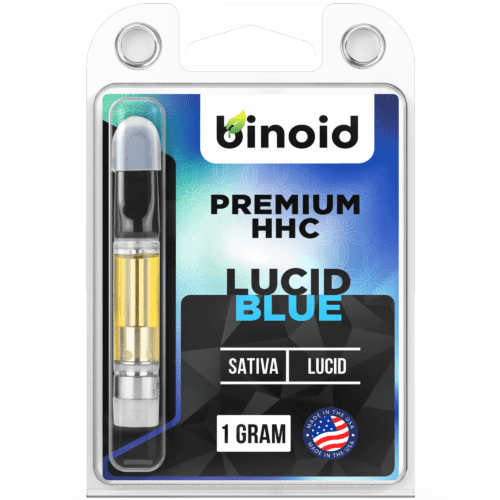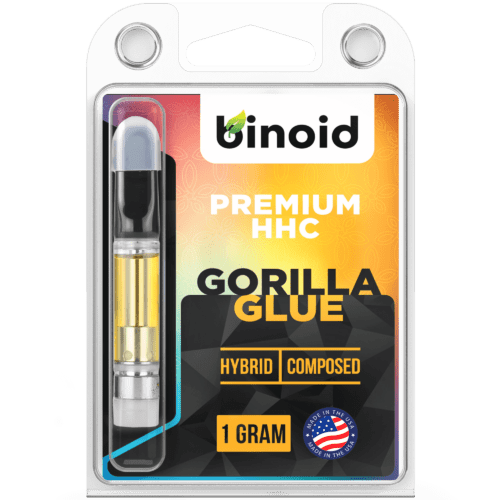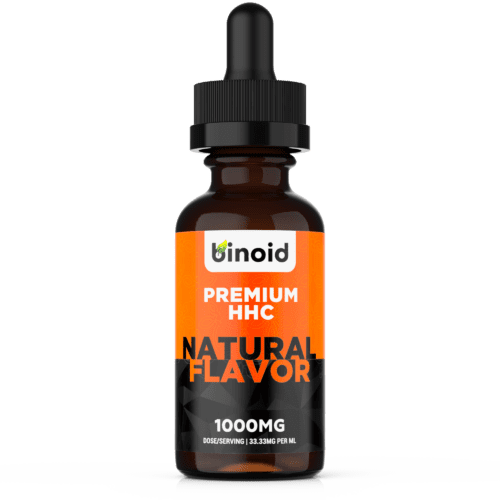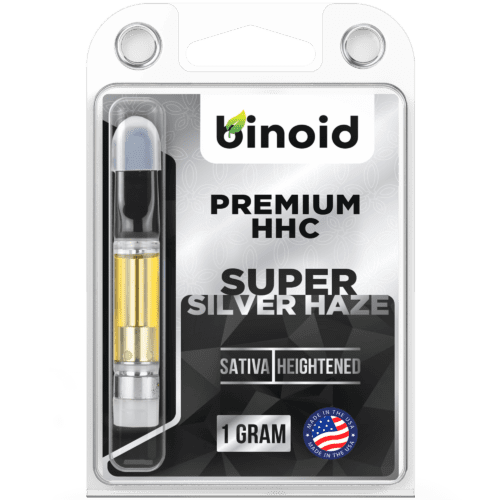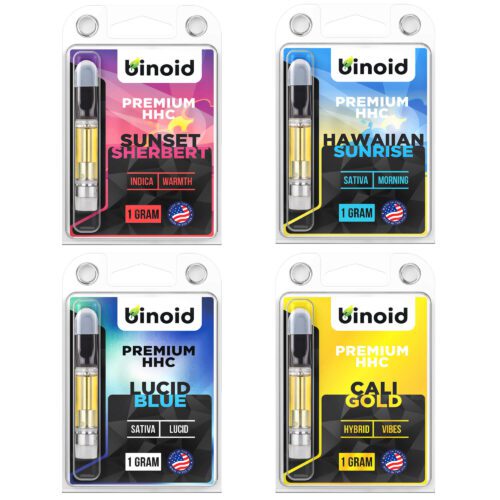The cannabinoid frontier continues to unfold, regularly presenting novel compounds that capture the imagination and interest of explorers within this green domain. One of those which has emerged as such an intriguing molecule, garnering attention for having unique structural properties and the distinct experiences it’s reported to offer is HHC.
In fact, as awareness and curiosity surrounding HHC grow, the inevitable question arises: what are the best avenues for acquiring it? For consumers, this often means choosing between the established, personal touch of a traditional dispensary and the vast, digitally-driven expanse of online cannabis and hemp retailers. This decision is crucial, as it profoundly influences the purchasing journey, and a clear understanding of each option is paramount for an informed selection.
To Buy HHC Products Click Here
Recommended products
Getting to Know Cannabis Dispensaries and Online Cannabis/Hemp Shops and Their Purposes
Before we turn our attention to the specifics of where one might find HHC, it’s constructive to build a solid understanding of the two principal types of retail environments that cater to consumers in the broader cannabis and hemp sector. Both the conventional brick-and-mortar dispensaries and the increasingly prominent virtual online shops fulfill vital, albeit sometimes converging, functions in providing access to an extensive array of plant-derived compounds and the products formulated from them. Each category operates under a distinct business paradigm, cultivates a unique consumer ambiance, and employs differing methods for customer interaction, all of which are significantly molded by the complex interplay of evolving regulatory landscapes and fluctuating consumer preferences.
Understanding Cannabis Dispensaries and Their Purpose
A cannabis dispensary is a state-sanctioned, physical retail outlet legally permitted to dispense cannabis and related cannabis-derived products to eligible individuals, strictly adhering to the specific regulations of its jurisdiction. These establishments commonly serve as the most conventional and easily recognizable points of access for consumers, particularly within states that have established comprehensive regulatory frameworks for either medical or adult-use cannabis programs. The actual physical design and atmosphere of dispensaries can exhibit considerable diversity, spanning from sleek, contemporary boutiques designed to offer a sophisticated, high-end retail experience, to more straightforward, clinically focused facilities where efficiency and direct product access are prioritized.
Irrespective of their chosen aesthetic, all licensed dispensaries are meticulously engineered with stringent security measures and unwavering regulatory compliance as foundational principles, typically incorporating controlled entry points where trained staff rigorously verify the age and, where applicable, the medical cannabis registration status of each individual before allowing access to the main sales area where products are displayed.
Upon gaining entry to the central retail space of a dispensary, patrons are generally greeted by well-organized and illuminated display cases that showcase a wide variety of products, often systematically categorized by type—such as dried cannabis flower, diverse edible formulations, potent cannabinoid concentrates, liquid tinctures, and various topical applications. The prevailing ambiance within these establishments is intentionally cultivated to be both welcoming and richly informative, with knowledgeable staff members, commonly known as “budtenders,” readily available to provide guidance and assist customers throughout the product selection process.
These essential frontline employees are expected to maintain a thorough understanding of the dispensary’s complete product inventory, encompassing detailed knowledge of cannabinoid and terpene profiles, potential experiential outcomes, and recommended usage practices, thereby empowering customers to make well-informed choices that precisely align with their individual preferences and desired experiences.
The fundamental mission of a cannabis dispensary extends significantly beyond the mere facilitation of commercial transactions; it also serves as an indispensable community resource for reliable cannabis-related information and, in many locales, acts as a visible emblem of the ongoing evolution in legal and societal attitudes toward cannabis.
Dispensaries are charged with the critical duty of ensuring that every single sale meticulously complies with all relevant state and local statutes and ordinances, which can include precise restrictions on allowable purchase volumes, exacting requirements for product packaging and consumer labeling, and comprehensive systems for tracking and reporting all sales activities to regulatory bodies for diligent oversight. This steadfast adherence to a robust and often complex regulatory structure is a defining characteristic of all legitimately licensed dispensaries, as they strive to furnish a secure, transparent, and unambiguously lawful channel for cannabis access while actively working to prevent any potential diversion of products to unregulated or illicit markets.
Adding to that, dispensaries frequently make significant contributions to bolstering consumer education by offering an array of valuable resources, which may include detailed informational pamphlets, comprehensive product guides, and personalized, one-on-one consultations, all aimed at assisting individuals in better understanding the intricate and diverse world of cannabis and its various active compounds. This strong educational commitment can prove particularly beneficial for individuals who are relatively new to cannabis or those who are cautiously exploring less familiar cannabinoids, such as HHC, or perhaps trying novel methods of consumption for the first time.
By fostering and maintaining a controlled, professional, and consistently informative environment, dispensaries actively endeavor to destigmatize the responsible use of cannabis and vigorously promote informed consumption habits among their broad and varied clientele, effectively positioning themselves as the primary, trusted interface between legal cannabis cultivators, innovative product developers, and the end-users within a highly structured and closely monitored system.
Recommended products
Understanding Online Cannabis/Hemp Shop and Their Purpose
An online cannabis or hemp shop is a digitally native e-commerce enterprise that provides consumers with the remarkable convenience of Browse, comparing, and purchasing an extensive selection of hemp-derived products for secure and direct shipment to their designated residential or private addresses. In notable contrast to traditional brick-and-mortar dispensaries, these internet-based retail platforms are not encumbered by the same physical or geographical limitations, a factor that empowers them to potentially engage with and serve a considerably wider and more dispersed customer base, often extending their reach across state lines, provided that all products offered strictly adhere to the relevant federal and individual state laws, especially those pertaining to hemp-derived cannabinoids like HHC that must rigorously comply with the federally mandated <0.3% Delta-9 THC concentration limit.
The “physical architecture” of such a business is its professionally developed and meticulously maintained website or dedicated mobile application, which is intentionally designed for optimal user-friendliness, intuitive product navigation, powerful search functionalities, and exceptionally secure, encrypted transaction processing, frequently augmented by detailed product specifications, high-quality visual imagery, authentic user-generated reviews, and a wealth of valuable educational content such as informative blogs and comprehensive FAQs.
The principal objective of an online hemp shop is to deliver an unparalleled level of convenience, ensure utmost customer discretion, and provide broad, unfettered access to an exceptionally diverse and comprehensive assortment of hemp-derived items. These digital commerce ventures can operate based on several distinct business models: some entities function as direct-to-consumer (DTC) brands, which signifies that they conceptualize, formulate, manufacture, and exclusively retail their own proprietary line of HHC and other hemp products through their dedicated online sales portal, thereby maintaining stringent control over the entire value chain from the initial sourcing of raw hemp materials and rigorous quality assurance protocols to the final product branding and the holistic customer experience.
Alternatively, many other online shops adopt a curated marketplace model, positioning themselves as centralized platforms that feature and retail an extensive range of products sourced from a multitude of different third-party brands, thus offering consumers a significantly broader comparative selection and the unique ability to explore and contrast various manufacturers, product formulations, potencies, and price points all within a single, easily accessible virtual shopping environment.
These digitally-focused retailers consistently place a high degree of emphasis on enhancing and optimizing the overall customer experience through the strategic implementation of sophisticated, aesthetically pleasing, and user-centric web design principles, the transparent provision of comprehensive and easily understandable product information, and the steadfast maintenance of highly responsive, knowledgeable, and empathetic customer support services, which are commonly made accessible through a variety of convenient channels including integrated live chat features, dedicated email support addresses, or direct telephone helplines.
Significant ongoing investments are characteristically made in advanced, multi-layered secure payment gateway technologies and carefully planned, discreet, unbranded packaging strategies to meticulously safeguard customer privacy and ensure complete satisfaction upon the timely receipt of their orders. Furthermore, a defining trait of the vast majority of reputable online hemp retailers is their proactive and unwavering commitment to fostering marketplace transparency and cultivating enduring consumer trust by prominently displaying or linking to exhaustive third-party laboratory test results, universally referred to as Certificates of Analysis (CoAs), directly on individual product pages or through a clearly designated, easily found section of their website.
Ultimately, online cannabis and hemp shops are meticulously architected to simplify, streamline, and significantly elevate the entire consumer purchasing journey, making it as fluid, information-rich, and operationally efficient as is technologically feasible for a modern, digitally-savvy clientele that increasingly prioritizes and values convenience, extensive product choice, and the intrinsic flexibility to engage in commerce from virtually any location at any time of day or night.
They skillfully employ a sophisticated array of cutting-edge digital marketing techniques, advanced search engine optimization (SEO) tactics, and a deep reservoir of engaging, high-quality educational content to effectively identify, attract, inform, and retain their target demographic segments, thereby playing an undeniably instrumental role in augmenting the general market accessibility and contributing significantly to the broader societal normalization and acceptance of federally legal hemp-derived cannabinoids throughout the diverse tapestry of the nation.
Their continued operational viability and success are fundamentally built upon core principles of exacting logistical precision and efficiency, the adept utilization of robust and scalable e-commerce technologies, dynamic and responsive inventory management systems, and a profound, perpetually updated comprehension of the intricate and constantly evolving legal, regulatory, and prevailing market dynamics that govern the compliant sale and responsible distribution of all hemp-based products.
Recommended products
Exploring the Unique Cannabinoid Known as HHC
With a foundational grasp of the primary retail environments for cannabis and hemp goods, our focus now shifts to a specific compound that has steadily gained traction for its unique profile and stability: Hexahydrocannabinol (HHC) is structurally similar to THC but with key differences that influence its properties and how it interacts with the body. As a hydrogenated derivative of THC, HHC is often discussed for its perceived similarities in effect to traditional Delta-9 THC, yet it also possesses distinct characteristics that have made it a subject of keen interest among both consumers seeking novel experiences and researchers exploring the vast cannabinoid landscape.
Its emergence in the market has added another layer to the already diverse offerings of hemp-derived compounds, prompting discussions about its production, effects, and legal standing. Understanding HHC requires a look into its discovery, its chemical nature, and the experiences users have reported, all while navigating a domain where scientific understanding is continually evolving.
The history of HHC dates back to the mid-1940s, making it one of the earlier cannabinoid derivatives to be synthesized, though its recent popularity is a much more modern phenomenon. Hexahydrocannabinol was first created in 1944 by the American chemist Roger Adams through a process called hydrogenation, where he added hydrogen molecules to Delta-9 THC, effectively altering its chemical structure by breaking THC’s double bonds and replacing them with hydrogen.
This process, similar to how vegetable oil is converted into margarine, results in a more stable compound. For many decades following its initial synthesis, HHC remained largely an academic curiosity, confined to scientific literature and not widely known or utilized outside of research contexts. It wasn’t until the recent surge in interest in alternative cannabinoids, particularly those derivable from federally legal hemp, that HHC re-emerged, with producers developing methods to create it, often by hydrogenating hemp-derived THC isomers or CBD that has first been converted to THC.
Delving into the science and chemistry of Hexahydrocannabinol, its defining characteristic is the absence of any double bonds in its cyclohexyl ring structure, which are present in THC isomers like Delta-8, Delta-9, and Delta-10 THC. This saturation with hydrogen atoms makes HHC exceptionally stable, granting it a longer shelf-life and greater resistance to degradation from heat and UV light compared to its THC counterparts. When HHC is synthesized, it typically results in a mixture of two main diastereomers (types of isomers): 9R-HHC and 9S-HHC.
These two molecules are mirror images of each other in one part of their structure but differ in their spatial arrangement. Studies and anecdotal evidence suggest that 9R-HHC is the more active of the two, binding more effectively to the body’s CB1 and CB2 endocannabinoid receptors and thus being primarily responsible for HHC’s psychoactive effects, while 9S-HHC is considered to be significantly less active or even inactive at these receptors. The ratio of these two isomers in an HHC product can therefore greatly influence its overall potency and perceived effects.
Regarding the experiential effects of HHC, consumers often report sensations that share similarities with those induced by Delta-9 THC, though there can be notable qualitative differences and variations in intensity, potentially influenced by the specific ratio of 9R-HHC to 9S-HHC in the product. Many users describe the experience as providing a sense of euphoria, an uplifted mood, and potential relief, often with a profile that some find to be more relaxing and less prone to inducing feelings of unease compared to traditional THC, though individual reactions are highly variable.
Some reports suggest HHC may offer a smoother onset and a more clear-headed experience, allowing for a degree of focus or engagement in activities. As with all cannabinoids, the perceived effects are subjective and can be influenced by factors such as dosage, individual tolerance, metabolism, the presence of other cannabinoids and terpenes (if in a full-spectrum product), and the method of consumption. Scientific research into HHC’s precise pharmacological effects on humans is still in its early stages compared to more well-studied cannabinoids.
HHC is now available in a continually expanding array of product formats, designed to cater to diverse consumer preferences and methods of use, reflecting its growing integration into the hemp-derived cannabinoid market. Below are some of the most common forms you are likely to encounter when seeking HHC products:
Flower: Similar to other novel cannabinoids, HHC is not typically found in high concentrations naturally in hemp flower; therefore, HHC flower usually consists of quality hemp buds (which could be Indoor Flower, Outdoor Flower, or Flower Smalls) that have been expertly infused or coated with HHC distillate. For those who prefer a traditional smoking experience without the fuss of preparation, Pre-Rolls made from this HHC-infused flower are also commonly available, offering convenience and consistent dosing.
Vapes: Vaping remains a highly popular method for consuming HHC due to its rapid onset of effects, allowing users to more easily gauge their experience. Common vape products include Pre-filled Cartridges containing HHC distillate, frequently blended with a variety of strains and terpene profiles to enhance flavor and potentially modulate the effects, designed to attach to standard 510-thread batteries. Disposable Vape Pens offer an all-in-one, user-friendly alternative, pre-charged and pre-filled with HHC distillate for maximum convenience and portability.
Edibles: HHC edibles, including popular choices like gummies and candies, as well as increasingly available baked goods such as cookies or brownies, offer a smoke-free method of consumption that results in a delayed but often more prolonged and intense experience due to metabolic processes in the liver. Precise labeling of HHC content per serving is crucial for these products to allow for responsible consumption, given the typically potent and extended nature of edible effects.
Drinks & Beverages: The category of HHC-infused drinks and beverages is an innovative and growing segment, providing novel and often socially oriented ways to consume the cannabinoid. These can range from effervescent seltzers and fruit-flavored sodas to versatile liquid enhancers or soluble powders designed to be mixed into other beverages, offering an alternative to traditional edibles with potentially varied absorption rates and experiential profiles.
Dabs/Concentrates: For experienced cannabinoid users seeking a more intense and immediate onset of HHC’s effects, various concentrates such as wax, shatter, or pure HHC distillate are available for dabbing or vaporization using specialized equipment. Given the potency of HHC, these concentrated forms are generally recommended only for individuals with a high tolerance and significant experience with cannabinoids, and should be approached with extreme caution, starting with very small amounts.
Tinctures: HHC tinctures usually consist of HHC extract combined with a food-grade carrier oil, like MCT oil or hemp seed oil, and are packaged in bottles with calibrated droppers for precise dosage control. Typically administered sublingually (under the tongue) for relatively rapid absorption into the bloodstream, tinctures offer a discreet and versatile method of consumption, as they can also be easily mixed into food or drinks if desired by the user.
Recommended products
Why Can HHC Be Found at Either a Dispensary or an Online Shop?
The presence of HHC-based products in both state-licensed cannabis dispensaries and various online e-commerce stores is largely dictated by its legal status, which is primarily determined by its method of production and how it aligns with federal and state laws, especially the 2018 Farm Bill. This federal legislation legalized hemp and its derivatives, provided they contain no more than 0.3% Delta-9 THC by dry weight. Since HHC is typically produced by hydrogenating THC (which can be sourced from hemp-derived CBD that is first converted to Delta-8 or Delta-9 THC) and because HHC itself is not Delta-9 THC, many manufacturers market it as a federally compliant hemp product, enabling its sale online and shipment to many states.
However, the legal landscape for HHC is complex and subject to ongoing debate and varying interpretations. Some legal experts argue that because HHC is often derived from hemp cannabinoids and is not THC itself, it falls under the Farm Bill’s protection. Others contend that its psychoactive nature and its creation through chemical synthesis might lead to it being considered an analogue of THC or a synthetically derived substance, which could place it in a different legal category, potentially facing restrictions similar to those for Delta-9 THC in some jurisdictions. Consequently, state-licensed dispensaries in regions with legal cannabis markets may offer HHC products sourced from either marijuana or hemp, adhering to their specific state regulations, while online vendors predominantly focus on HHC marketed as hemp-derived, navigating the intricate and sometimes ambiguous patchwork of state-by-state cannabinoid laws.
Recommended products
Breaking Down the HHC Buying Matchup: Dispensaries vs. Online Shops
Selecting the optimal source for your HHC products requires a nuanced assessment of several key factors – from the variety and specificity of available items and their associated price points to the level of purchasing ease and the particular ambiance of the shopping environment you prefer. While both established physical dispensaries and the rapidly expanding online retail sector offer persuasive reasons for patronage, they ultimately serve differing consumer needs and are distinguished by their unique sets of benefits and potential limitations, particularly when considering a semi-synthetic cannabinoid like HHC whose legal interpretation can vary.
Appreciating the intricacies of this comparison calls for a detailed review of what each retail model furnishes, thereby enabling individuals to make a well-grounded decision that harmonizes with their personal requirements and shopping inclinations within the dynamic landscape of cannabinoid access.
Contender #1: Dispensaries
Opting to source HHC products from a state-licensed dispensary can be a prudent choice for consumers, particularly those residing in states where cannabis has been legalized for medical or adult-use purposes. These regulated establishments provide a secure and professionally managed setting where individuals can often find a curated selection of HHC items, potentially including those whose base cannabinoids might have been sourced from state-compliant marijuana, alongside hemp-derived options.
A significant advantage of purchasing from a dispensary is the assurance that comes with state-level regulatory oversight; products available through these channels are generally required to meet specific state mandates concerning testing for potency, purity from various contaminants, and accurate, comprehensive labeling, offering consumers a degree of confidence in product quality and safety.
The primary appeal of the dispensary experience frequently lies in the opportunity for direct, face-to-face consultation with staff members, or budtenders, who are typically trained to provide guidance on the various cannabinoids and products their establishment offers, including HHC. This personalized interaction can be especially beneficial for consumers who are new to HHC, or who have specific questions about its reported effects, its comparison to other cannabinoids like THC, or appropriate starting dosages and consumption methods. Furthermore, the ability to physically acquire the chosen HHC products immediately upon purchase, without incurring any delays associated with shipping and handling, is a practical benefit that many individuals find highly appealing and convenient.
Pros & Cons
Evaluating dispensaries for HHC purchases involves considering both their strong points and their limitations, especially given HHC’s unique status as a hydrogenated cannabinoid whose regulatory interpretation can differ. The very structure of their physical, state-regulated operation shapes these aspects, offering distinct benefits but also some inherent drawbacks when contrasted with the digital marketplace.
Pros:
Immediate Product Availability: The most evident advantage is the ability to purchase and possess HHC products instantly, allowing consumers to leave the store with their items in hand on the same day, bypassing any wait times for shipping.
In-Person Guidance and Consultation: Dispensaries offer direct access to budtenders who can provide valuable real-time advice on HHC, discuss its nuanced effects, compare it to other cannabinoids, and help determine appropriate product choices and initial usage amounts.
Products Meet State-Mandated Testing Standards: HHC products sold in licensed dispensaries must generally adhere to state-specific testing requirements for cannabinoid content, potency, and potential contaminants, offering a layer of quality assurance.
Support for Local, Regulated Businesses: Purchasing from a local dispensary supports businesses that operate within the state’s legal framework, contributing to the local economy and the compliant cannabis industry.
Reduced Risk of Counterfeit or Unsafe Products: The regulated supply chain inherent to licensed dispensaries significantly minimizes the risk of encountering counterfeit, mislabeled, or potentially unsafe HHC products from unverified sources.
Opportunity to Inquire About Source Material: Consumers may have a better opportunity to inquire directly about the source material (hemp or marijuana-derived cannabinoids) used in the HHC production process for products sold in dispensaries.
Tangible Shopping Experience and Product Packaging Review: Customers can physically see product packaging, check for seals, review labels for detailed information, and generally feel more connected to the purchase process in a physical retail environment.
Cons:
Limited Geographic Access: Availability is strictly confined to individuals in states with legal cannabis markets and operational dispensaries that elect to carry HHC products, which may not be universal.
Potentially Higher Costs: Due to significant overhead expenses including regulatory compliance, security, staffing, and physical retail space, HHC products from dispensaries may be priced higher than some online alternatives.
Selection May Be Limited by State Regulations or Store Focus: The variety of HHC brands and product types might be narrower than online specialists, potentially influenced by state regulations or the dispensary’s primary focus on THC-rich marijuana products.
Less Anonymity in Purchasing: Dispensary transactions typically require ID verification and are less discreet than online purchases, which may be a concern for some individuals seeking HHC.
Recommended products
Contender #2: Online Shops
Online hemp shops have carved out a significant niche as a primary resource for consumers exploring the ever-expanding world of hemp-derived cannabinoids, including HHC, by offering a distinctly different purchasing experience compared to traditional physical dispensaries. Their principal appeal often centers on the unparalleled convenience and broad accessibility they provide, enabling individuals to browse, research, and purchase HHC products from virtually any location, subject to the specific state and local laws governing the sale and shipment of such hemp-derived compounds.
These digital e-commerce platforms frequently feature an impressively wide-ranging catalog of HHC items, often showcasing a multitude of brands and encompassing diverse product formulations like vapes, edibles, tinctures, and concentrates, regularly surpassing the HHC-specific inventory that a typical local dispensary might carry. A critical factor that distinguishes trustworthy online retailers in the hemp industry is their common commitment to operational transparency, particularly demonstrated through the readily available provision of comprehensive third-party laboratory reports, widely known as Certificates of Analysis (CoAs), for each HHC product they list for sale.
This dedication to verifiable quality control empowers prospective customers to independently scrutinize and confirm vital product attributes, such as the precise HHC potency (including the ratio of active 9R-HHC to less active 9S-HHC, if provided), the complete cannabinoid profile (ensuring compliance with the <0.3% Delta-9 THC federal limit for hemp products), and the certified absence of potentially harmful contaminants like residual solvents, pesticides, and heavy metals. Such easily accessible documentation is fundamental in fostering consumer confidence and facilitating genuinely informed purchasing decisions, especially when evaluating a compound like HHC.
Pros & Cons
The digital marketplace for HHC presents its own unique array of benefits and drawbacks that shape the consumer experience. Before you finalize an online purchase, considering these potential advantages and disadvantages will help ensure your choice aligns with your needs and expectations when seeking this particular hydrogenated cannabinoid.
Pros:
Exceptional Convenience and 24/7 Shopping: The paramount benefit is the ability to shop for HHC products at any hour from the comfort and privacy of home, eliminating travel and the constraints of physical store hours.
Potentially Wider Variety of HHC Brands and Products: Online retailers specializing in hemp-derived cannabinoids may offer a more extensive selection of HHC-specific product types, potencies, and innovative formulations from various manufacturers across the country.
Competitive Pricing and Access to Promotions: Lower overhead costs often allow online shops to offer HHC products at more competitive prices, with frequent opportunities for discounts, bundle deals, and loyalty programs.
Direct Access to Third-Party Lab Reports (CoAs): Reputable online vendors typically make it easy to view CoAs for their HHC products, enabling consumers to verify purity, potency (including isomer ratios if detailed), and compliance before purchasing.
Enhanced Discretion in Purchasing and Delivery: Online shopping provides a higher degree of privacy, with HHC products usually shipped in discreet packaging directly to the customer’s chosen address.
Wealth of Customer Reviews and Community Insights: Product pages on online shops often feature numerous user reviews and ratings, offering valuable perspectives from other consumers’ experiences with specific HHC items and vendors.
Extensive Educational Content Often Available: Many online platforms provide detailed information, articles, and FAQs about HHC, including its properties, production, and comparisons to other cannabinoids, aiding consumer education.
Broader Geographic Accessibility (Subject to State Laws): For individuals in areas without local dispensaries or where dispensaries don’t stock HHC, online shops can often provide access, assuming state laws permit the shipment of hemp-derived HHC.
Cons:
Need for Thorough Vendor Due Diligence: The online space requires careful vetting of vendors to ensure they are reputable and provide authentic, accurately labeled HHC products, as the market is less uniformly regulated than state-licensed dispensaries.
Shipping Times and Potential Additional Costs: Unlike immediate dispensary purchases, online orders incur shipping times that can vary, and shipping fees might apply, potentially offsetting some price advantages.
Inability to Physically Inspect Products Pre-Purchase: Consumers cannot physically examine HHC products or their packaging before buying online, relying solely on website information, images, and reviews.
Navigating Complex and Variable State Legality: The legal status of HHC, even when hemp-derived, can be ambiguous or actively restricted in certain states, placing the onus on the consumer to understand and comply with their local regulations.
Recommended products
Which Option is the Best for Your HHC Needs?
Navigating the path to your preferred HHC experience culminates in a choice that mirrors your individual priorities within an ever-evolving marketplace. While local dispensaries certainly offer the undeniable benefit of immediate product acquisition and direct personal interaction, particularly valuable for discussing a nuanced compound like HHC with knowledgeable staff, the clear trajectory of specialized cannabinoid procurement increasingly highlights the sophisticated advantages of the digital frontier for many informed consumers. It is within this expansive online ecosystem that the discerning individual frequently discovers an unparalleled synthesis of comprehensive product variety from numerous brands like Binoid, readily accessible in-depth information including lab reports, and verifiable operational transparency, all of which are keystones of a genuinely empowered purchasing journey.
Overall, the truly optimal avenue is the one that not only delivers the HHC product you seek but also instills the profound confidence and clarity that arise from a meticulously informed decision, allowing you to fully appreciate your exploration of this unique cannabinoid. Basically, the wisest path isn’t merely about obtaining a product; it’s about embracing the clarity and assurance that come from diligent research and choosing a source that aligns with your personal standards for safety, quality, and transparency, thereby elevating your entire HHC experience.

